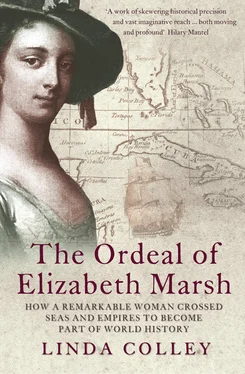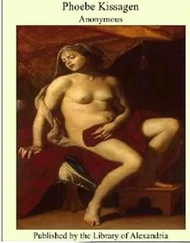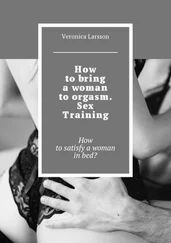James Evans had prospered in Jamaica. He had obtained a licence ‘to sell and retail wine, beer, ale or other strong liquor’ in the house he rented in Port Royal. 20 Judging by the inventory, this drink shop was a modest establishment, with six old tables, each equipped with a candlestick, seating for eighteen, a spittoon, a close stool, and little else in its interior except a chest and a corner cupboard, and some beds (the establishment may have doubled as a brothel). But, together with the wherry he owned and rented out to the Royal Navy, the business had allowed Evans and his wife to live in modest style. They owned ‘a new feather bed & pillows’, pewter-ware, supplies of fine linen – and at least nine adult slaves. As was customary in slaveholding systems throughout the world, these people had been given new names so as to erase their pre-slave selves and re-inscribe them as property. For his female slaves, Evans had selected mock-classical names that bear witness again to his literacy, and to its limits. There was ‘Cresia’ and her two ‘pickaninnys’, and ‘Palla’ (Pallas?) and her child, and Venus and Silvia, who all worked in one capacity or another in the drink shop. Since Evans used his male slaves to crew his wherry, and rented them out to the navy as dock labourers and caulkers, they were named in more practical, masculine style. As with his women slaves, however, Evans gave them single names, not multiple names like white people. He called them ‘Plymouth’, or ‘Gosport’, or ‘Bristol’, or after other British ports, as if they were horses or pet animals, not human beings. 21
By Jamaican standards, this level of slave-ownership on the part of a skilled craftsman was not unusual. The 157 inhabitants of Port Royal who were registered as slave-owners in 1738 laid claim on average to nine slaves apiece. 22 But to Milbourne Marsh, an English incomer with no property beyond the contents of his sea-chest, the sight of this level of affluence in a fellow shipwright must have been startling, and it is unlikely that it was merely physical and emotional attraction that drew him initially to James Evans’ wife.
Evans took his meagre revenge, as he would have seen it, in his will. His still ‘beloved wife Elizabeth Evans’, he stipulated, was to inherit all of his estate, including ‘all negroes’, but with a single exception. One of the household’s male slaves was to be given up, and shipped off in perpetuity to an Evans family member in Philadelphia. The slave who was to be sent away, James Evans specified, was ‘one negro man named Marsh’ . No individual of that name is included in the inventory of Evans’ estate, which lists all of his slaves. He seems to have inserted this provision about a ‘negro man named Marsh’ in his will as a calculated, posthumous insult to an interloping Englishman named Milbourne Marsh, and perhaps also as a glancing verbal slight aimed against his own wife. By the end of the year, for whatever reason, James Evans was dead, leaving behind goods and human chattels valued in his inventory at more than £ 625. On 12 December 1734, the day after Elizabeth Evans was formally granted permission ‘to take into her possession and to administer’ all of her late husband’s property, she married Milbourne in Kingston’s Anglican church. 23 By January 1735, she was pregnant.
Who was she, this woman Milbourne Marsh took to wife? And how had she come to be in Port Royal before marrying her first husband in 1728? The name ‘Elizabeth Bouchier’ does not appear in lists of indentured servants and convicts from Britain coming to Jamaica around this time, though this does not prove she was not amongst them. 24 Nor can she be conclusively identified from the surviving Jamaican parish registers – but then, these too are incomplete documents. No record of baptisms for Port Royal seems to have survived, for instance, earlier than 1722. More unusually, the Family Book that was compiled much later by Milbourne Marsh’s younger brother, George Marsh, yields no information about this woman. It was George Marsh’s custom, after introducing individual family members in the Book, to allocate a brief sentence to their spouses, especially if this could illustrate his clan’s respectability and upward mobility. Thus, while he set down his cousin Warren’s wife as ‘a very bad woman’, he was much more concerned to record how his own father had married ‘the best of women’, and how his niece Margaret Duval’s husband was a ‘most worthy sensible good man’, and so forth. In the paragraphs of the Family Book he devoted to Milbourne Marsh, however, the relevant sentences where a judgement on his elder brother’s spouse might have been expected have been inked out. 25 The Marsh family’s surviving correspondence also reveals nothing about this woman, and only very occasionally acknowledges her existence. Virtually the only extant formal record of the Elizabeth Bouchier who became first Elizabeth Evans and then Elizabeth Marsh, after her brief appearance in Kingston’s marriage register, is her (now removed) memorial tablet in a church in Chatham, Kent. ‘She was’, Milbourne Marsh had engraved there, ‘a good Christian wife and mother.’ But after this careful testimonial, he supplied no details of her parentage or place of origin. 26
She remains a question mark in this story, therefore, but there are at least two possible answers. A widow called Margaret Boucher is listed in the Port Royal vestry minutes as living in a rented house in the town in the late 1730s, and as in receipt of occasional charity. Given the casualness with which surnames, especially those of the poor, were recorded at this time, Milbourne Marsh’s new wife may have been this woman’s daughter. If so, she was white or passed for such, since Margaret Boucher’s name is included in ‘A List of the white inhabitants of this parish’ compiled in Port Royal in 1738. 27 If this particular ‘Margaret Boucher’ was her widowed mother, the woman who had once gone under the name of Elizabeth Bouchier clearly left her behind in Jamaica when she escaped to England in 1735, and she made no effort to perpetuate Margaret Boucher’s first name when she came to christen her own daughter.
There is however another possibility. There were Bourchiers – and not just Bouchers – resident in Jamaica at this time. The former, whose surname was also spelt in various ways and who seem to have arrived on the island in the 1660s, were planters. If she did possess some blood relationship with this family, the woman who went on to become Elizabeth Marsh’s mother is unlikely to have been a legitimate child. Daughters of Caribbean planters born in wedlock did not customarily go on to marry shipwrights. She might conceivably have been a mulatto, the mixed-race, possibly christened child of a white landowner – perhaps Charles Bourchier, who died in 1726 – and an African slave mother. 28 Or there may have been no blood relationship, just a plantation past at some point. Manumitted slaves in Jamaica sometimes took and kept the surnames of their former owners.
It was widely believed that incoming mariners established easier, more equal relations with members of Jamaica’s black and mulatto population than most of the island’s white residents were willing or able to do. ‘Sailors and negroes are ever on the most amicable terms,’ a one-time resident in Jamaica wrote later:
This is evidenced in their dealings, and in the mutual confidence and familiarity that never subsist between the slaves and the resident whites. There is a feeling of independence in their intercourse with the sailor, that is otherwise bound up in the consciousness of a bitter restraint … In the presence of the sailor, the Negro feels as a man. 29
This was an overly sentimental verdict. At least one of the reasons for incoming British sailors cultivating members of Jamaica’s black population was crudely exploitative: the number of single white women in the island’s port towns who were of artisan or servant status, and therefore potentially available as seamen’s companions, was very limited.
Читать дальше












